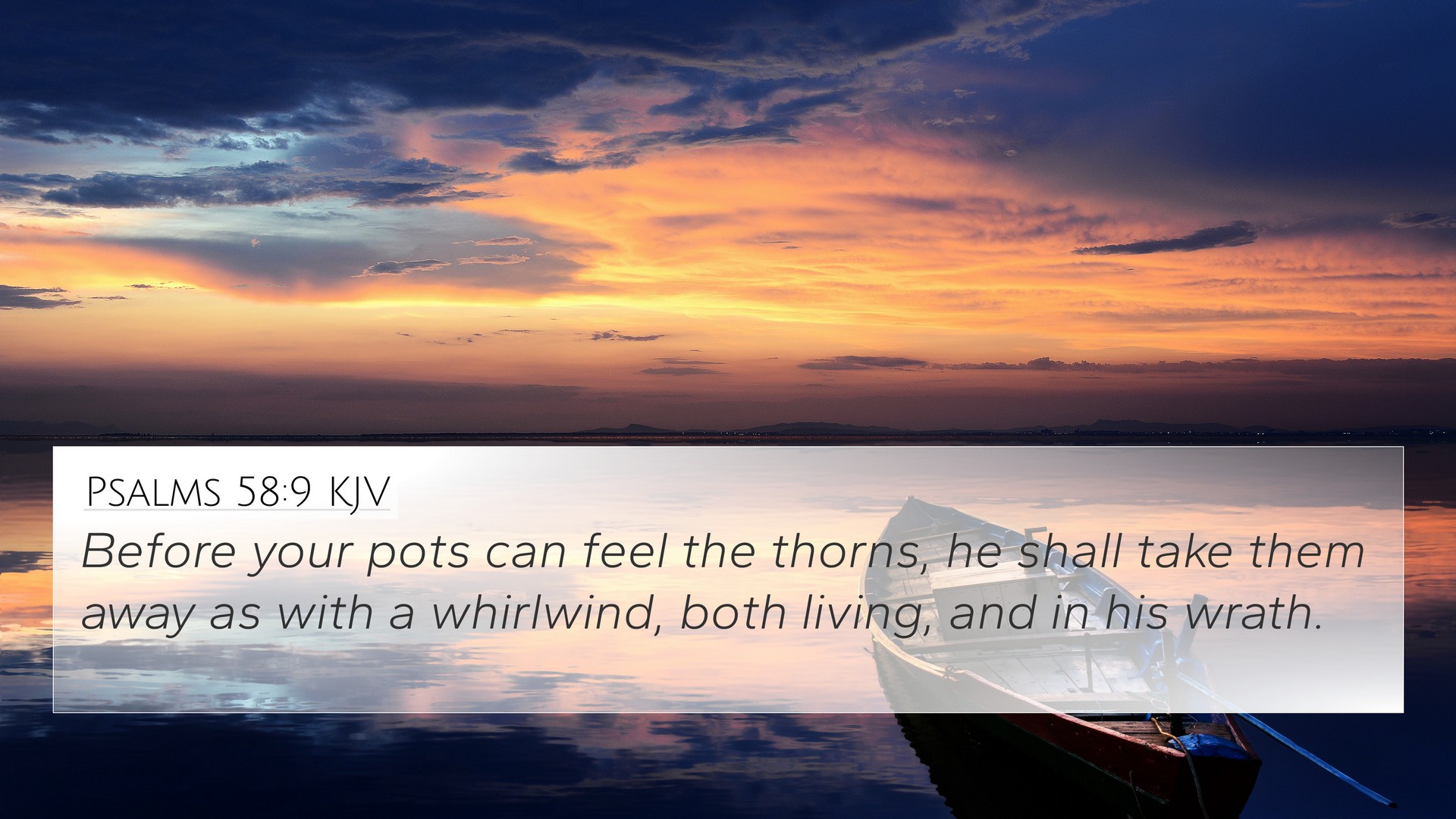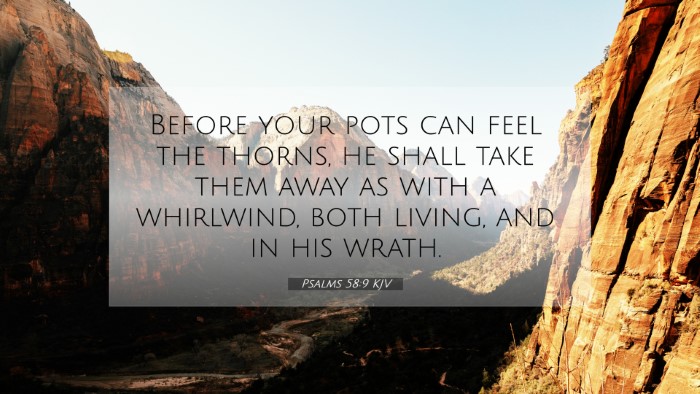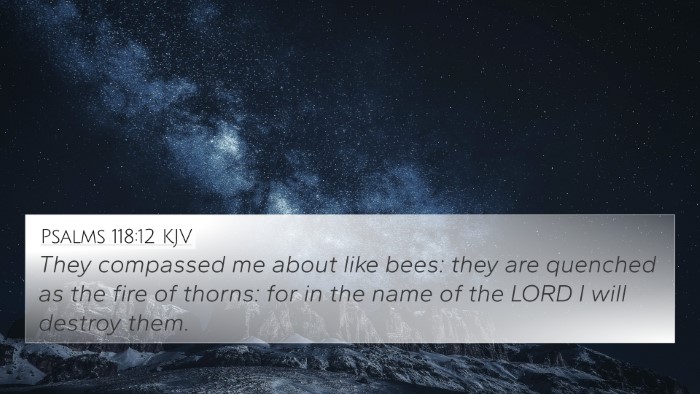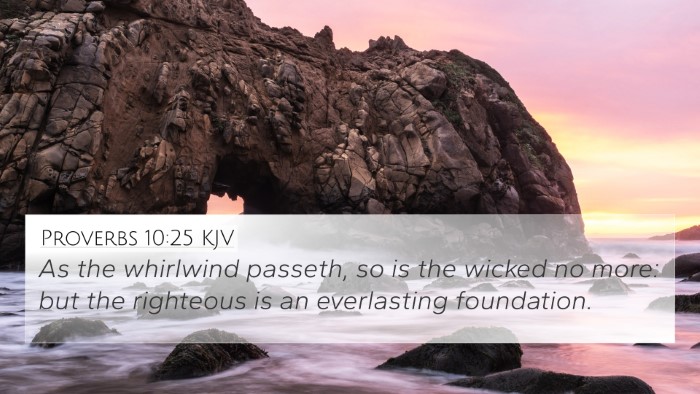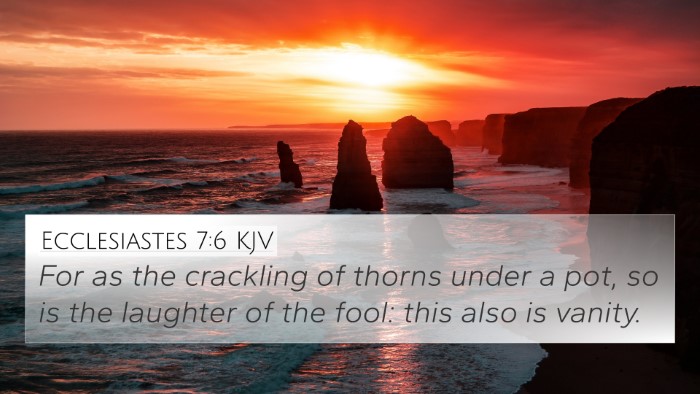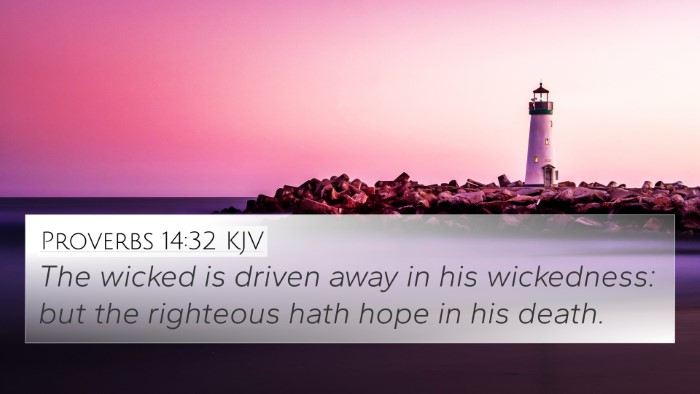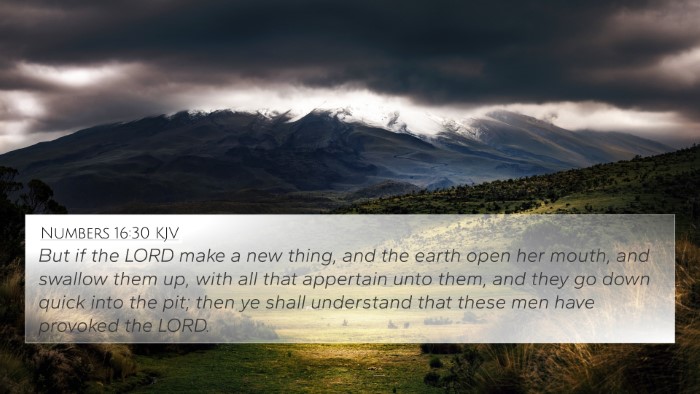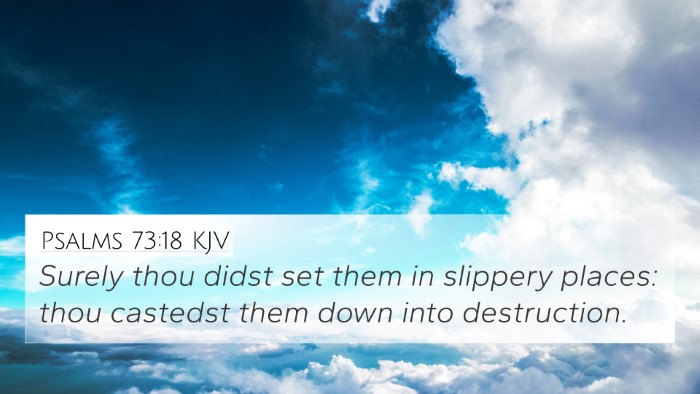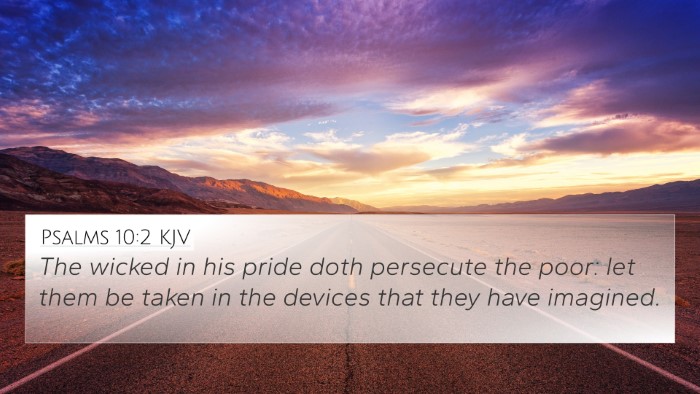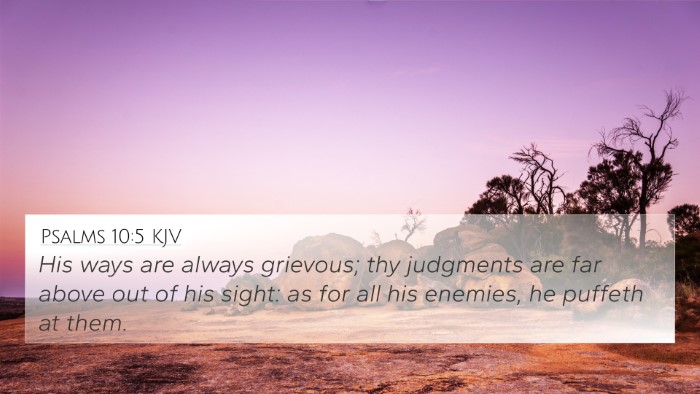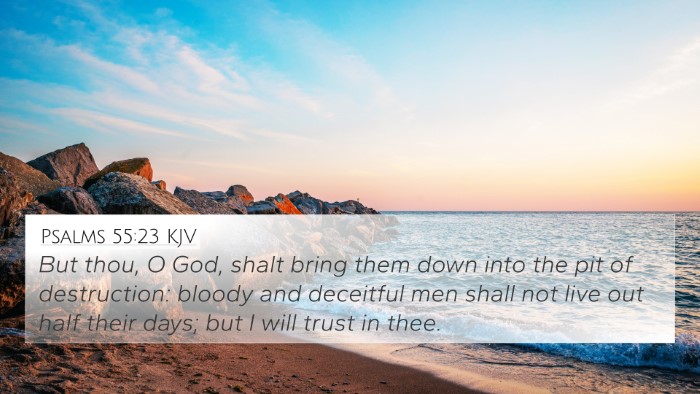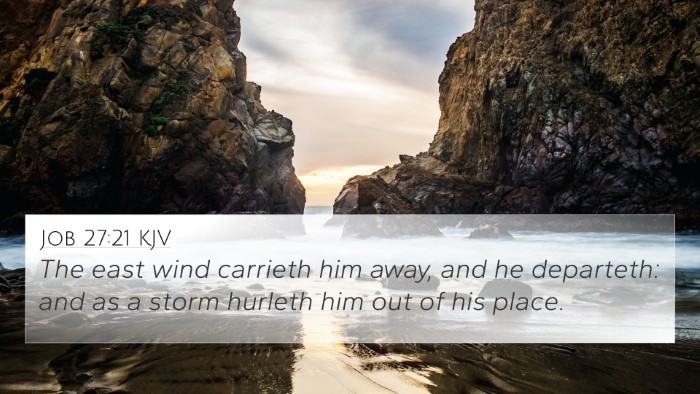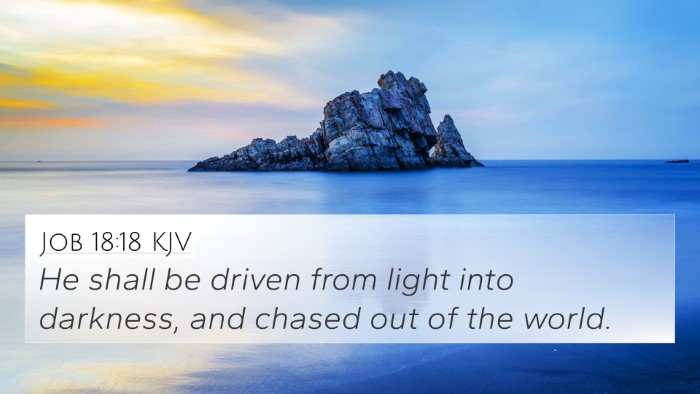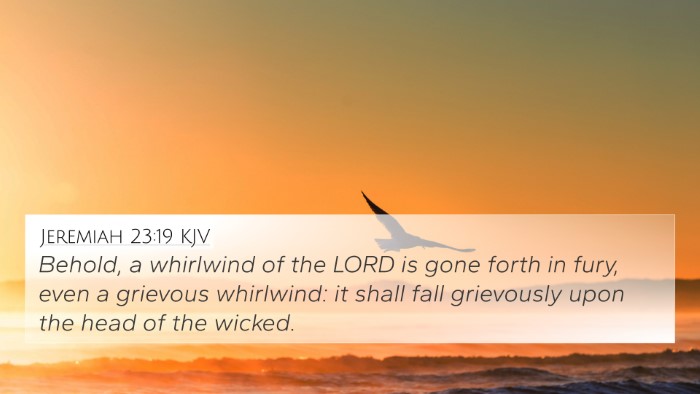Psalms 58:9 - Summary and Interpretation
Bible Verse: Psalms 58:9
"Before your pots can feel the thorns, he shall take them away as with a whirlwind, both living, and in his wrath."
Meaning and Insights
This verse from Psalms depicts a vivid image of divine judgment and the swift removal of evil. The "pots" here symbolize the resources or comforts of the wicked and how quickly they can be lost when God acts against injustice.
Commentary Insights
- Matthew Henry: Henry draws upon the intended swiftness of God's judgment, reminding us that before the very comforts of the unjust can benefit them, God's wrath can swiftly intervene.
- Albert Barnes: Barnes emphasizes that the term "thorns" can refer to evils that entangle the wicked. He suggests that just as they cannot enjoy the fruits of their iniquity, they will soon reap the consequences of their actions.
- Adam Clarke: Clarke interprets this verse as a warning: the ends of the wicked are not only uncertain but perilous. Clarke underlines the severity of divine wrath which can act unexpectedly, much like a whirlwind sweeping away all in its path.
Inter-Biblical Connections
This verse is relevant to several other passages, illustrating a theme of divine judgment and the fate of the wicked. Below are notable cross-references:
- Proverbs 10:25: "When the whirlwind passes, the wicked is no more: but the righteous is an everlasting foundation." This verse echoes the idea of sudden judgment upon the wicked.
- Isaiah 17:13: "The nations shall rush like the rushing of many waters: but God shall rebuke them, and they shall flee far off." Similar imagery of judgment is present here.
- Matthew 3:12: "Whose fan is in his hand, and he will thoroughly purge his floor, and gather his wheat into the garner; but he will burn up the chaff with unquenchable fire." This speaks to the separation of the righteous from the wicked.
- Luke 17:26-27: "As it was in the days of Noah, so it will be also in the days of the Son of Man..." This relates to sudden judgments in history.
- 2 Peter 2:9: "The Lord knows how to deliver the godly out of temptations and to reserve the unjust under punishment for the day of judgment." A strong parallel to God's enduring judgment upon the wicked.
- Revelation 20:15: "And anyone not found written in the Book of Life was cast into the lake of fire." This reflects the ultimate fate awaiting the unrepentant.
- Psalms 37:20: "But the wicked shall perish, and the enemies of the LORD, like the splendor of the meadows, shall vanish. Into smoke they shall vanish away." This conveys the ephemeral nature of the wicked's prosperity.
Thematic Connections
The verse can also be linked to broader themes in the Bible, including:
- Divine Justice: God's justice is portrayed consistently throughout Scripture, showing that He will deal with wrongdoers.
- Immediacy of God's Judgment: The quickness of God's actions against the wicked reiterates that one's sins do not go unpunished.
- Contrast between the Wicked and the Righteous: The portrayal of the fate of the wicked often juxtaposes with the security and blessings for the righteous, a theme prevalent in Psalms.
How to Use Bible Cross-References
For those engaging with scripture, understanding the connections through cross-references can deepen your study. Some tools and methods include:
- Utilizing a Bible concordance to locate related verses easily.
- Employing a cross-reference Bible study guide to explore thematic connections.
- Engaging in comparative verse analysis to see how different verses reflect on similar concepts.
Conclusion
This brief analysis of Psalms 58:9 illustrates the potent imagery of divine wrath against wickedness. By examining cross-references and thematic connections, one can glean a richer understanding of God's consistent principles throughout the Biblical narrative. Whether for personal study or sermon preparation, these connections strengthen the understanding of God’s nature and His justice.
